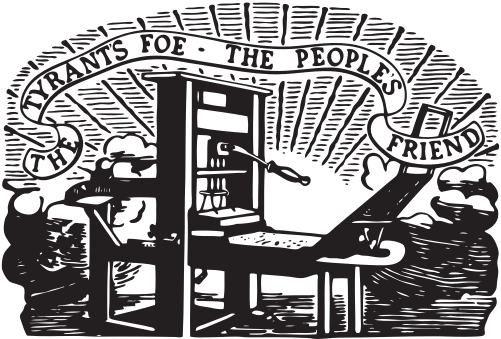Once again, the Texas Legislature is entering the final stretch of its session and, once again, Republicans’ high-profile promise to deliver property tax cuts to the landed masses still hangs in the balance.
In 2023, the two chambers squabbled over differing approaches to providing such relief—tax compression for the House and increasing the homestead exemption in the Senate—before, after two special sessions, finally striking a $13 billion deal. About $7 billion was used by the state to effectively buy down local school districts’ property tax rates, while almost $6 billion more was dedicated to increasing the tax-free threshold for home values from $40,000 to $100,000.
That deal was marketed by Republican state leaders as historic relief for struggling homeowners (and just in time for the 2024 elections, no less). While the cuts successfully lowered property tax bills for most homeowners in 2023, many saw those savings wash away the following year with soaring property values in the state’s booming housing market.
Entering 2025, GOP leaders promised further cuts. In his State of the State address, Governor Greg Abbott blamed the fleeting relief of the 2023 cuts on spend-happy liberal local governments that raised rates—never mind that the state had already rigidly capped many local entities’ ability to do so. Abbott has now called for local governments to get two-thirds approval from voters on tax hikes of any amount. “No approval, no new taxes,” he said. And, he promised still more: “I want at least $10 billion in new property tax relief.”
Three months later, the House and Senate are once again pushing their own favored tax cut methods. Lieutenant Governor Dan Patrick and his Texas Senate have passed a bill to increase the homestead exemption to $140,000, while the House is committed to additional tax compression and new cuts for businesses. The chambers do agree on one thing though: They both commit to only $6.5 billion total on new property tax relief, well short of the governor’s stated goal. As of Monday, the House and Senate claimed to have reached a tentative agreement on the tax cut package. (Abbott’s call for super-majority voter approval of local tax hikes, meanwhile, doesn’t appear to be going anywhere.)
So why is the Lege only dedicating this relatively paltry amount—and why hasn’t the governor made a peep about the House and Senate failing to meet his declared goal?
Well, perhaps, it’s a quiet acknowledgement by Texas’ top pols that the state cannot forever spend gargantuan sums every two years on what amounts window dressing for an utterly broken system of taxation.
Consider that the state government has, since 2019, racked up a massive running tab just to maintain property tax cuts, and it’s eating up an increasingly large share of the budget pie: $51 billion in the coming biennium, including the $6.5 billion in projected new cuts. That accounts for 15 percent of the budgeted spending for the next two years, according to the Texas Tribune, more than the state allocates to its entire higher education system or even its notoriously well-endowed budget for transportation (i.e. highways). For context, all the property taxes across all of Texas generated a total of $81.5 billion in state and local revenue in 2023.
This state of fiscal affairs has caused bipartisan consternation, with even Republican legislators cautioning that the time is nigh for tax-cut rationing. “We’re building a large obligation, and it’s going to detract from things we absolutely can’t afford not to do, if we’re not careful,” warned Republican state Senator Charles Perry, per the Tribune.(Such necessary things may include, for instance, a multi-billion dollar long-term investment in the state’s water supply, which Perry is pushing this session.)
Further, the Texas state coffers have been blessed by massive revenue surpluses in the last few years created by a mix of tens of billions of dollars in federal pandemic aid and a surprisingly strong surge in sales tax revenue. The former is gone; the latter is not expected to sustain.
The Trump administration’s tariffs and trade wars could also disproportionately devastate the Texas economy, which has proven relatively resilient in past economic downturns. The state coffers may be bursting now, but if things go south, the next session could be a budget-cutting bloodbath, the likes of which has not been seen since 2011—well before most current lawmakers were in office. This may well be the last time Texas lawmakers can afford to pass new property tax cuts. The next time around, they may have to consider rolling them back.
After all, GOP leaders won’t be eager to cut all of the expensive new pet political projects that they’re pushing this session. There’s Abbott’s new private school voucher program which has an initial $1 billion in biennial funding earmarked—but which could cost a net $4 billion a year by the end of the decade.
There’s also Patrick’s push for a major expansion of the state’s film incentive program at a projected cost of $2.5 billion over the next decade. The Senate and House have additionally passed another Patrick initiative to put $3 billion into the creation of a dementia research institute—surely a noble endeavor, though the sort that is only made in such fiscally flush times.
And then, of course, there’s the $6.5 billion that the Lege is committing to keep running the border security machine known as Operation Lone Star for the next two years, despite the fact that border crossings have plummeted and Trump has all but declared “mission accomplished.”
There are other political tokens that come at lesser cost: For instance, the first bill signed into law by the governor this session is to create a Texas DOGE Office that will purportedly be placed in charge of deregulation in state government. To reduce the yoke of such bureaucratic tyranny will require establishing a new bureau in the governor’s office, at an estimated cost of over $20 million in the next five years.
The mounting property tax crisis is a self-inflicted, self-fulfilling prophecy in Texas. Republicans’ pursuit of endless economic growth to create a low-tax, low-regulation, corporate nirvana, has come at a high cost. With more and more companies setting up shop here, more and more people are moving into the state. Therefore, housing in the state’s major metro regions has become a red-hot commodity, causing home values to soar.
And given that Texas is a no-income tax state, likely forever, property taxes are a dominant source of revenue for state and local governments—most particularly, for public schools. There’s a reason that Texans have nearly the highest property tax bills in the country.
As the GOP-run state government has thrown tens of billions of dollars toward property tax cuts in recent years, it’s naturally helped propel a movement among a large and influential faction of the party’s base to call for the outright abolition of property taxes. It’s an alluring idea, if you don’t think about it for more than a couple of seconds. But then one considers that the only other alternative for funding a (somewhat) functioning society in Texas is to further tax the act of consumption—that is, sales taxes, which are already high in the state and are always the most regressive form of taxation, placing the highest burden on those with the least.
That is not a politically popular alternative. Recall 2019, when the Legislature was in the process of enacting a round of major property tax cuts. Abbott, along with the lieutenant governor and House speaker, held a big press conference to float a plan to help lower property taxes with a 1 percent hike to the sales tax rate. That so-called sales tax swap idea died a swift death, and it hasn’t been broached since.
The revenue problem grows ever more entrenched, and at some point, the proverbial chickens will roost. At present, state lawmakers are “preparing” for that eventuality by preemptively blocking future solutions—a strategy launched a few years back when the GOP passed (and voters approved) a constitutional amendment making the highly unlikely process of enacting a state income tax even more unlikely.
The first bill that the Texas House passed (with bipartisan support) this session was a constitutional amendment resolution to prohibit any sort of financial transactions tax (which blue states like New York have considered but never taken up) on stock traders, hedge funders, and the like. This symbolic grovel comes as Texas is positioning itself as a new Y’All Street financial mecca. Another bill favorably voted on that day would create a sales tax exemption for game and exotic animals, which fill the massive hunting ranches of Texas that serve as playgrounds for the rich and their politician friends. (Both have since passed the Senate as well.)
Perhaps the only thing more absurdly unhelpful to ordinary Texans would be to put a sales tax cap on purchases for something like luxury yachts! Oh wait, it seems the Lege already did that one, in 2019.








